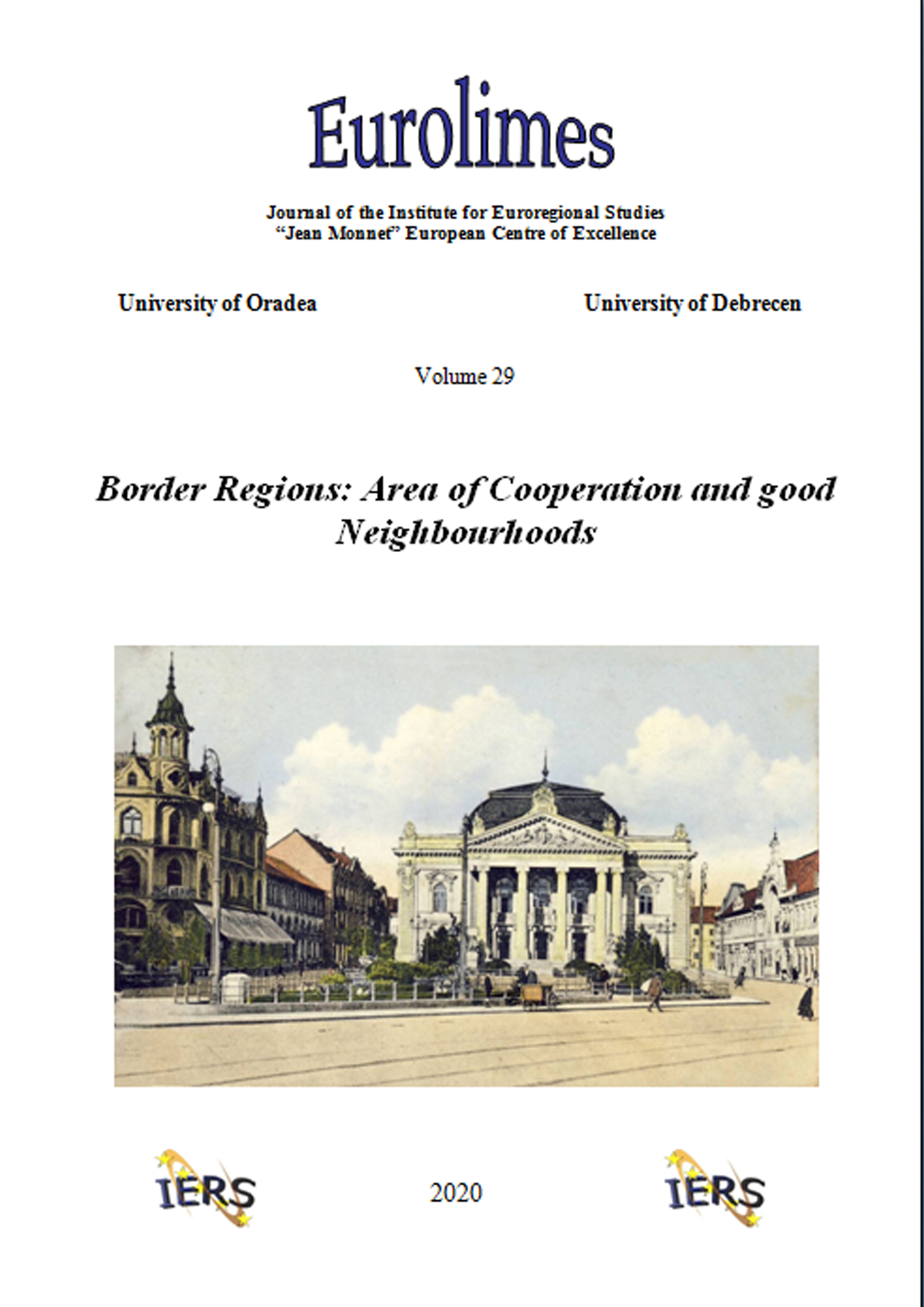Differentiated Integration and European Borderlands: A Proposition to an Analytical Approach to Study the Development of Peaceful Cross-Border Relations. The Case of Sweden and Norway
Differentiated Integration and European Borderlands: A Proposition to an Analytical Approach to Study the Development of Peaceful Cross-Border Relations. The Case of Sweden and Norway
Author(s): Magnus Lindh, Anders ForsellSubject(s): Politics / Political Sciences, Geography, Regional studies, Regional Geography, Political Sciences, Governance, Geopolitics
Published by: Editura Universitatii din Oradea
Keywords: Norway; border; Sweden; boundary;
Summary/Abstract: As the Brexit process shows, questions on how to preserve and create sustainable peace and friendly relationships in conflict-ridden border regions have come to the fore in the debate of European integration. In a theoretical context of differentiated Europeanisation that acknowledge the dynamics between centralization, functionality and the territorial dimension, this paper explores the mechanisms that may foster more peaceful and harmonious relationships between neighbouring communities in cross-border relations. Building upon historical evidence, on how the breakup of the union between Sweden and Norway in 1905 evolved from a very hostile climate, close to war, to what is now commonly understood as a “border of peace,” we identify important mechanisms that may be of general interest in similar cases of cross-border hostility. Of particular importance to us is how the relationship between neighbouring communities between Northern Ireland and the Republic of Ireland may develop in the event of Brexit, and if a “hard border” between the two countries will be realized. In a report to the Irish Central Border Area Network (2018), individuals on both sides of the Irish border speaks of fear what will happen after Britain has left the European Union. As the voices from the survey shows, many people fear that old conflicts will rise again, and that the European identity connected to the EU-membership will be replaced by the old national and religious identities, leading to the conflict to erupt once again. Even if we empirically focus on a particular border region the aim is to contribute to the general debate on how functionally differentiated border-regions in Europe may adopt different strategies on how to develop safe and sustainable neighbourhoods.
Journal: Eurolimes
- Issue Year: 29/2020
- Issue No: 29
- Page Range: 125-144
- Page Count: 19
- Language: English
- Content File-PDF

